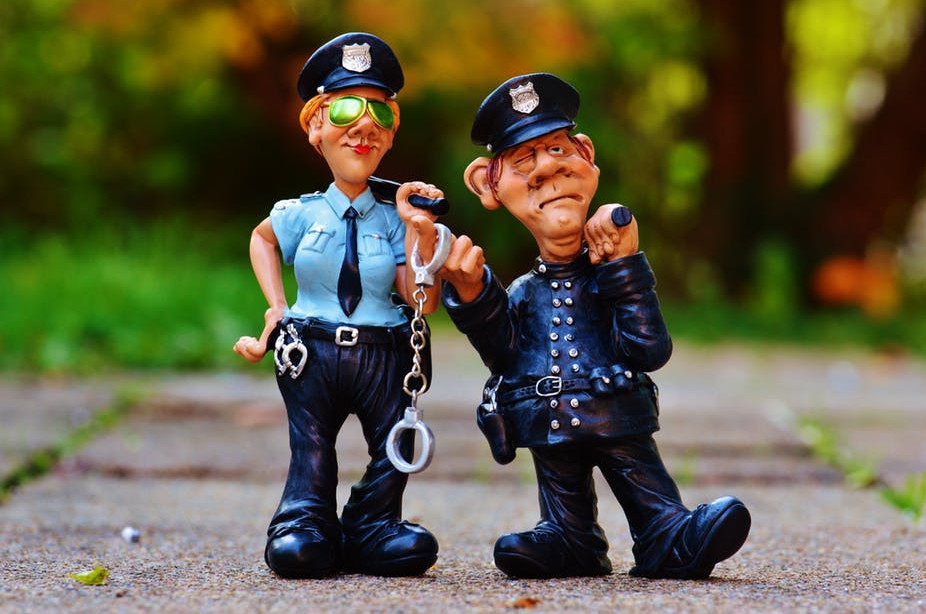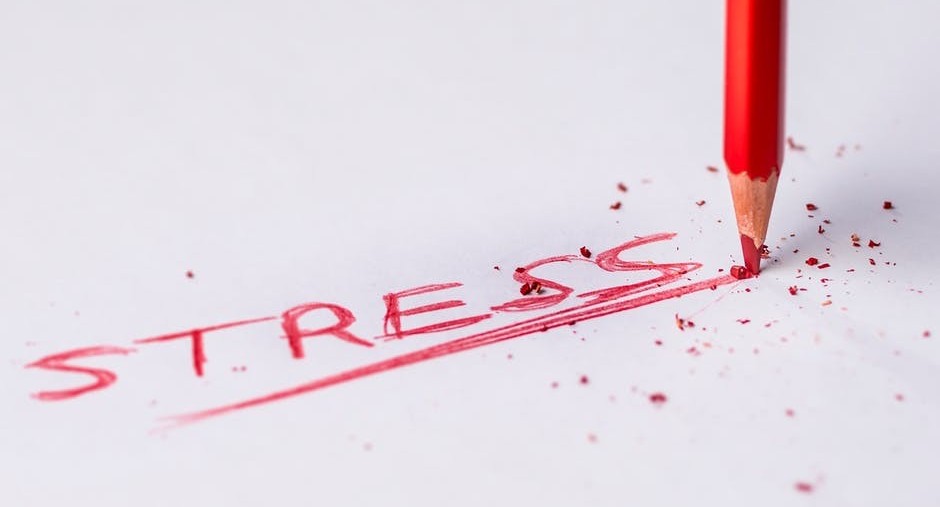I once had the very scary pleasure of teaching a whole classroom full of senior police officers while I was working for YBM in Korea. I was sweating bullets as most of them remained stone-faced during the whole class. It was a good chance to get to know some people who just might save my behind if I ever got in trouble in the city.
I never got a chance to really make any connections or get out of any tickets but I have this awesome list of phrases and expressions to share with both students and teachers. I actually just taught these phases in class and I think I was able to have a few select officers do a role-play. Use this in whatever way you want.
A Class for Police and People Who Need Police
Tourists
![]() Questions tourists ask police
Questions tourists ask police
- I’m lost. Can you help me find the Pacific Hotel?
- I’m looking for the American Consulate/Embassy.
- My luggage/suitcase was stolen. What should I do?
- Who can we trust to exchange our money?
- Where is the bad part of town?
- Please help us. Our child is missing.
Questions police ask tourists
- Which hotel are you staying at?
- When did you lose your wallet?
- How much money was in your purse?
- What did the thief look like?
- What was the man wearing?
- Did he have a weapon?
- Where/When did you last see your child?
- How old is your child?
- What was your child wearing?
Comforting a tourist in distress
- Please stay calm. I am going to help you.
- We will do everything we can.
- I’ll give you a map of the city.
- Try not to panic.
- I can give you a ride to the hospital.
- The ambulance is on its way.
- Don’t worry; everything is going to be okay.
Traffic and Accidents
![]() Pulling over drivers
Pulling over drivers
- Can I see your driver’s license and passport?
- Have you been drinking tonight?
- How much have you had to drink?
- How fast do you think you were going?
- Do you know what the speed limit is?
- Is this a rental car?
- You were driving too fast.
- You broke the speed limit.
- You were driving on the wrong side of the road.
- You’re driving the wrong way in a one-way street.
- You were traveling too close to the car in front of you.
- You cut off another car.
- You didn’t obey the traffic signals.
- You aren’t wearing your seatbelt.
- You aren’t allowed to park here.
- I’m going to keep your driving license and give you a ticket. You can go to the police station to pay the fine. They will give your driving license back to you.
Questions police ask an injured driver
- Are you hurt?
- Can you stand up/move?
- Where does it hurt most?
- How did the accident happen?
- Who was at fault?
- What did the other car look like?
- Is there someone you want to call?
- Don’t worry. We’ve called an ambulance.
Sample Conversation
A Korean police officer pulls over an American driver on the highway for speeding…
| Police: | Can I see your driver’s license, please? |
| Man: | Ah, yeah. I think it’s in my pocket. No. Maybe my wallet. Uh. Yeah here. |
| Police: | Do you know how fast you were driving? |
| Man: | No, sorry. It’s a rental car. I’m not used to it. |
| Police: | Have you been drinking tonight, Mr. Davidson? |
| Man: | I had one or two drinks. I’m okay to drive, though. I know my limit. |
| Police: | How long have you been in Korea? |
| Man: | A few weeks, why? |
| Police: | It seems you are unaware of our zero tolerance for drinking and driving. |
| Man: | I’m not drunk. I’ll blow into a breathalyzer. |
| Police: | In Korea, you cannot operate a vehicle after consuming any alcohol. |
| Man: | Oh, I didn’t know that. |
| Police: | You were also going over the speed limit, Mr. Davidson. I’m going to have to ask you to step out of your vehicle and get into my car. |
| Man: | This is crazy. But what about my car? |
| Police: | We’ll have the rental car towed to the agency. When you’re in our country you have to respect our rules. |
Crime and Punishment
A crime is a serious offense such as murder or robbery. A punishment is a penalty imposed on somebody who is convicted of a crime. A punishment could be, for example, time in prison or a fine.
![]() Questions from lawbreakers or suspected criminals
Questions from lawbreakers or suspected criminals
- Why did you pull me over?
- Have I done something wrong?
- Is this illegal?
- What are my rights?
- Can I call a lawyer?
- Where are you taking me?
- Can I make a phone call?
Questions police may ask a suspected criminal
- Are you carrying any illegal drugs?
- Do you have a weapon?
- Does this belong to you?
- Whose car is this?
- Where were you at eight last night?
Informing someone of laws and police procedures
- You are under arrest.
- Put your hands on your head.
- I am taking you to the police station.
- Please get in the police car.
- You will have to pay a fine for this.
- I will give you a warning this time.
- I’m going to write you a ticket.
- We’ll tow your car to the station.
- It is against the law to do drugs.

Types of crime
| Crime | Definition |
| abduction/kidnapping | taking a person to a secret location using force |
| armed robbery | using a weapon to steal |
| arson | setting fire to a place on purpose |
| assault | hurting another person physically |
| attempted murder | trying to kill someone (but failing) |
| burglary,
breaking and entering |
going into another person’s home or business with force |
| child abuse | injuring a child on purpose |
| domestic violence | a physical assault that occurs within the home |
| drug trafficking | trading illegal drugs |
| drunk driving | driving after having too much alcohol |
| fraud | lying or cheating for business or monetary purposes |
| hijacking | holding people in transit hostage (usually on a plane) |
| murder/homicide | taking someone’s life through violence |
| shoplifting | stealing merchandise from a store |
| smuggling | bringing products into a country secretly and illegally |
| speeding | driving beyond the speed limit |
| terrorism | acts of crime against a group (political/religious) or another country |
| theft | stealing |
| torture | extremely cruel and unfair treatment (often towards prisoners) |
| vandalism | damaging public or private property (for example with spray paint) |
| white-collar crime | breaking the law in business |

Types of punishment
| Punishment
(example offense) |
Definition |
| traffic ticket
(speeding, parking) |
leaves marks on driving record/involves paying a fine |
| license suspension
(drunk driving) |
driving rights are removed for a certain period of time |
| fine
(hunting out of season) |
pay money as punishment for minor/petty crime |
| house arrest
(a young offender who is waiting to go to court) |
remain in one’s home for a certain period of time |
| community service
(a youth that steals a car for the first time) |
do volunteer work such as teaching children about crime or cleaning up garbage |
| jail time
(a man who assaults his wife) |
spend a certain amount of months or years locked away from society |
| life in prison
(a woman who commits homicide/ murder) |
spend the rest of one’s life in prison with no chance of going back into society |
Be Safe Out There
Whether you are a police officer, a victim or a criminal, I hope this class comes in handy. Good luck in class and I hope you don’t need these phrases because you are in trouble only because you are helping someone.
Jim






